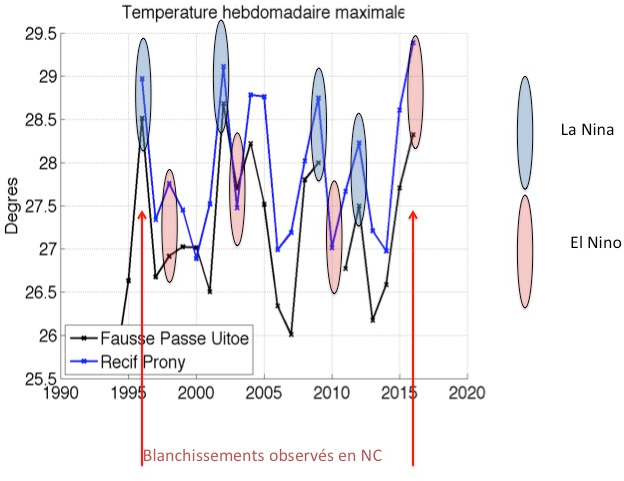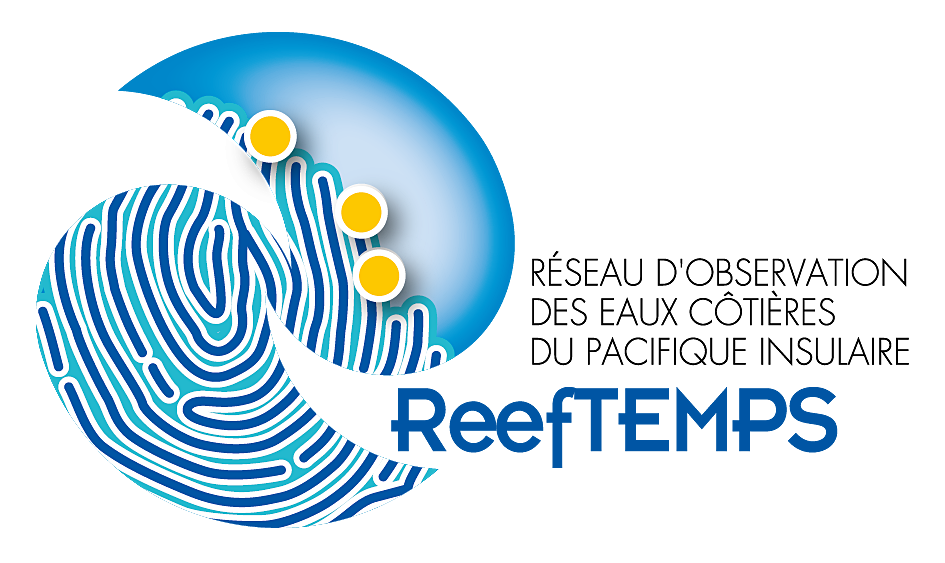Study of the temperature variation

Temperature is a key parameter for monitoring coastal ocean ecosystems. Obtained regularly and over the long term, this data is an essential complement to the periodic monitoring of the health status of coral reefs and coral and fish populations. Climate change and warming give rise to events that can lead to massive destruction of the ecosystem, such as coral bleaching. To understand an event, or to analyze the state of health of an ecosystem, it is essential to know the history of the physico-chemical conditions of the environment and in particular of temperature, an essential indicator that is relatively simple to measure. These data make it possible to characterize the oceanographic variability of reef-lagoon environments and to feed regional databases that can be used for complementary objectives in the fields of fisheries, tourism, aquaculture, etc. Freely distributed to the scientific community, they are used in the following studies:
- knowledge of the long-term variation in seawater temperature
- local impact of climate and the El Nino phenomenon

and others: documentation of the rapid appearance, on a daily scale, of cold water upwelling along reef barriers, in relation to winds and the thermal and biological structures of the ocean (Alory et al. 2006; Marchesiello et al, 2010); assistance in the validation of lagoon models and coastal numerical simulations (Ouillon et al. 2005, 2009); assistance in calibration for the reconstruction of past series from coral analysis (Beck et al. 1992; De Carlo et al. 2019).


Recent Comments